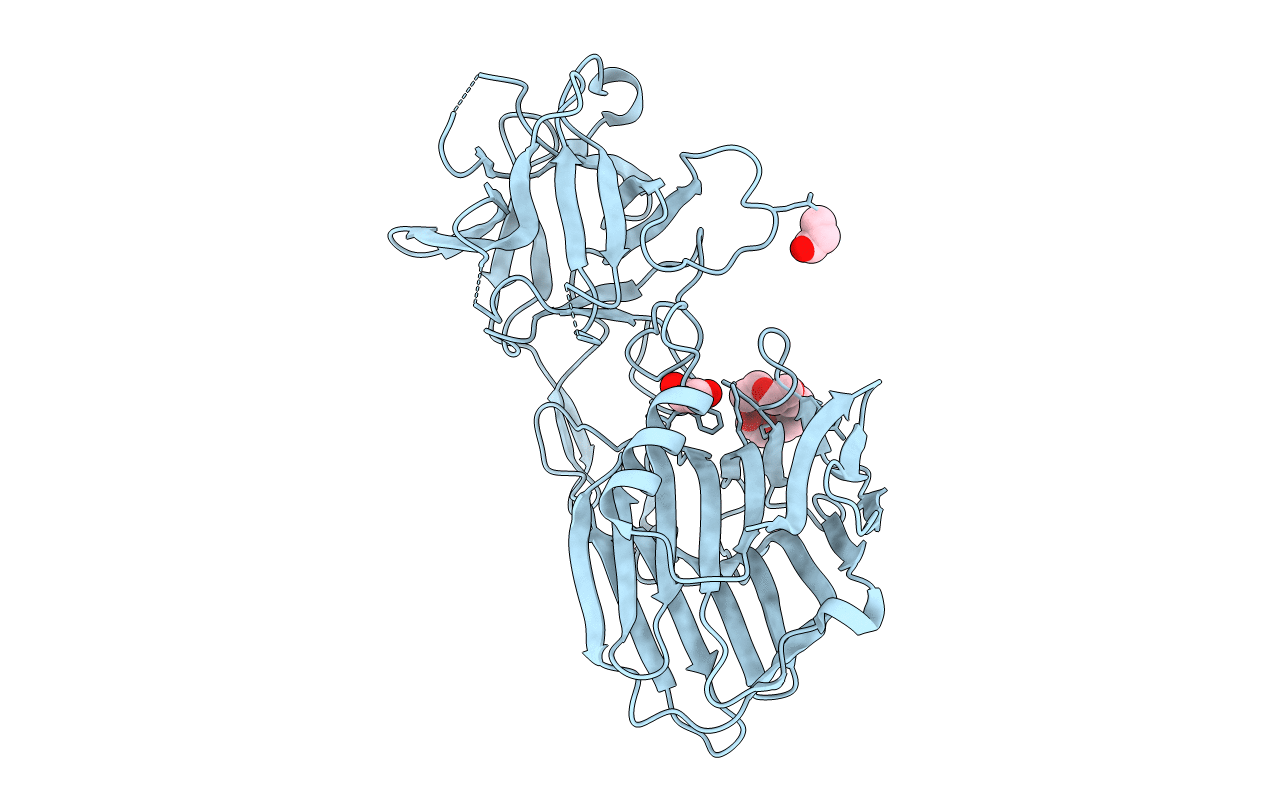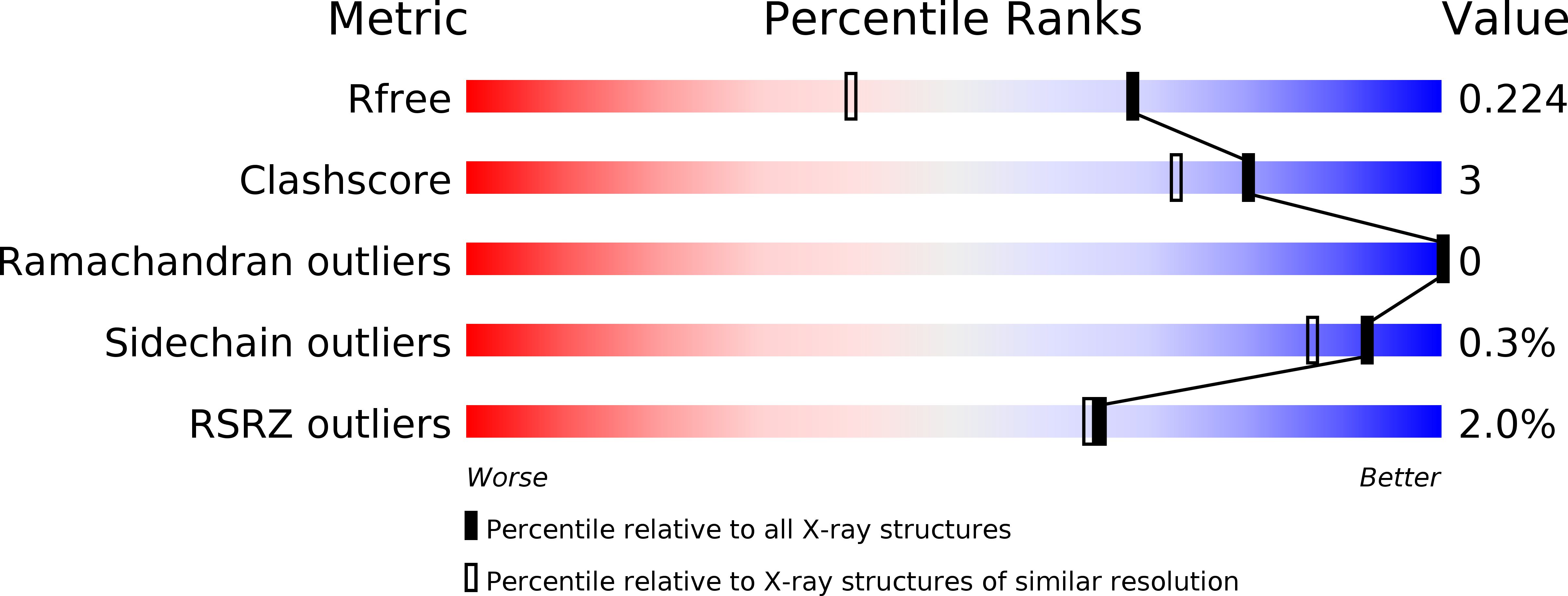
Deposition Date
2017-11-20
Release Date
2018-01-10
Last Version Date
2024-01-17
Entry Detail
Biological Source:
Source Organism(s):
Expression System(s):
Method Details:
Experimental Method:
Resolution:
1.60 Å
R-Value Free:
0.21
R-Value Work:
0.17
R-Value Observed:
0.18
Space Group:
P 21 21 21


